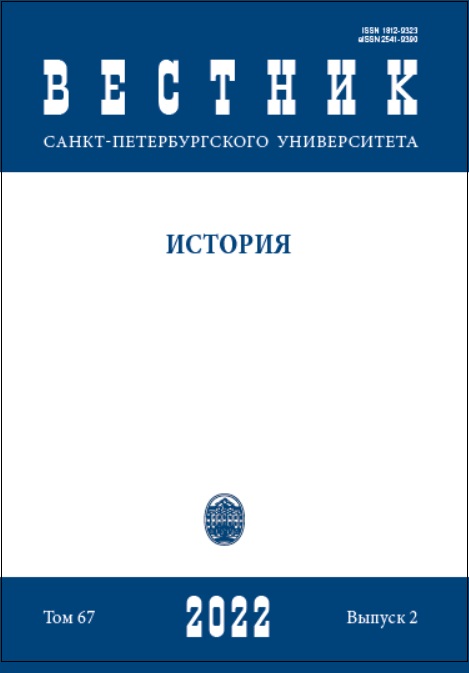The End of the Council for Mutual Economic Assistance
DOI:
https://doi.org/10.21638/1701/spbu02.2022.213Abstract
This paper analyzes the negotiations within the Council for Mutual Economic Assistance during the final years of its existence, focusing on the Soviet reform proposals and M. S. Gorbachev’s vision of the “Common European Home” as well as on Eastern European reaction to them. In the second half of the 1980s, Gorbachev tried to found a “unified market” for the Council for Mutual Economic Assistance by introducing a market-oriented reform of the organization. However, this attempt did not materialize because of the East German and Romanian objections. After the collapse of Eastern European socialist regimes in 1989, the Soviet leadership urged the member-states to accelerate the reform of this international organization, hoping to achieve the pan-European economic integration through close cooperation between the totally reformed Council for Mutual Economic Assistance and the European Community. Although the Central European countries, namely Czechoslovakia, Hungary, and Poland, aspired to join the EC individually, they agreed to participate in a successor organization of the Council for Mutual Economic Assistance because the EC was not ready to accept them. Accordingly, by the beginning of 1991, all the member-states agreed to establish a consultative organization, which would be named the Organization for International Economic Cooperation). However, as the Soviet Union failed to sustain trade with the Central European countries, the three countries lost interest in the project. As a result, the Council for Mutual Economic Assistance was disbanded without any successor organization. In other words, it did not collapse automatically after 1989 but came to an end as a result of various factors, such as rapidly declining trade between the member-states, Western disinterest in the cooperation with it, and the Central European policy changes.
Keywords:
Soviet Union, Council for Mutual Economic Assistance, Eastern Europe, Czechoslovakia, Hungary, Poland, European Community
Downloads
References
References
Downloads
Published
How to Cite
Issue
Section
License
Articles of "Vestnik of Saint Petersburg University. History" are open access distributed under the terms of the License Agreement with Saint Petersburg State University, which permits to the authors unrestricted distribution and self-archiving free of charge.





